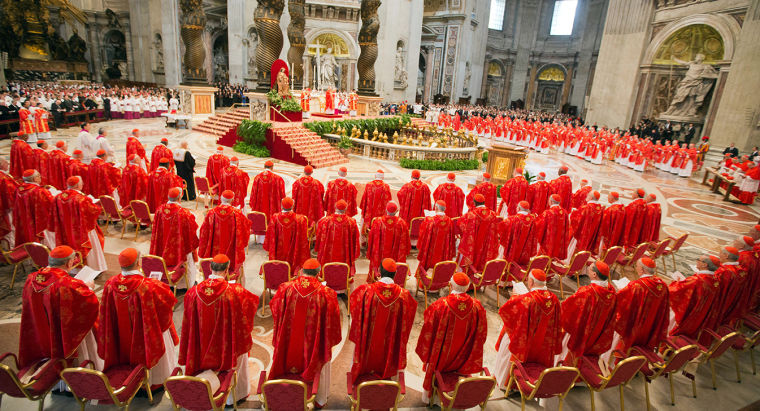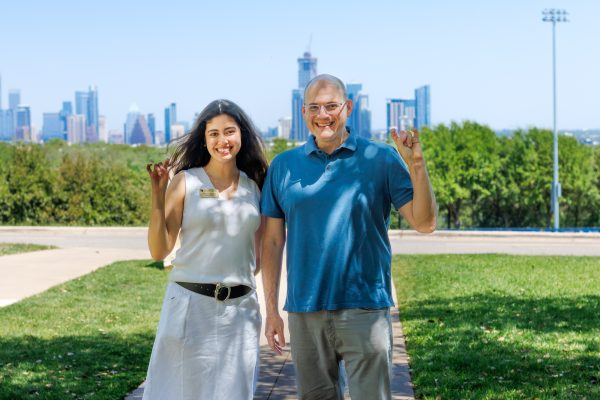Church examines gay rights under new papacy
In the month since Cardinal Jorge Bergoglio became Pope Francis I, he has taken steps to try and change tradition in what many are calling a “rebirth” of the Catholic Church. His dress, shoes and new living arrangements are modest. He is shifting focus to the needs of the poor and washed the feet of both male and female teens in a juvenile detention center on Maundy Thursday rather than those of other elite Catholic officials.
In the midst of this “rebirth,” the Archbishop of New York, Cardinal Timothy Michael Dolan, defended the church’s view on traditional marriage, but he paired that argument by calling the church and individual Catholics to be more welcoming and loving toward homosexuals.
“We need to do better to see that our defense of marriage is not reduced to an attack on gay people,” Dolan said.
Dolan’s comments came after the issue of same-sex marriage took center stage with the Supreme Court hearing two cases questioning the constitutionality of Proposition 8 and the Defense of Marriage Act. Catholic teaching calls for its followers to love everyone because all humans are made in the image and likeness of God.
Dolan is not calling for a change in doctrine or teaching, but rather a change in the openness of individuals toward others with different beliefs or sexual orientations. Dolan is one of the first high-up Catholic officials to make a call in the defense of homosexuals as humans made in the likeness of God.
However, Director of Campus Ministry, Fr. Peter Walsh, said that the heart of the problem is that people have responded to Dolan’s statements as if he said something truly revolutionary.
“In a way I thought, the Cardinal said that the sky is blue,” Walsh said.
For those who support gay marriage, marriage is looked at as a personal decision and limiting marriage is viewed as an infringement of personal liberty. However, when the church looks at marriage it sees it as a public relationship first. For Christians, it is a sacrament, so marriage is seen as more than a legal joining of two people.
“It is a joining of two people in God’s eyes. The perspectives are different, and the disconnect is one that we need to be especially aware of,” Walsh said.
Campus Ministry prides itself on welcoming everyone and wants homosexual students to feel at home on campus and in Campus Ministry. Campus Ministry supports PRIDE and recognizes that LGBTQIA students are a valued part of the St. Edward’s University community.
“As an individual, it isn’t really a big deal on St. Ed’s campus. The university is welcoming and accepting of who people are,” Grace Maverick, executive director of PRIDE said.
However, according to Maverick, this welcoming demeanor changes at times when PRIDE tries to organize events.
“We’ve received vague restrictions,” Maverick said.
According to Maverick, St. Edward’s is specifically worried about endorsing an image that supports gay marriage. Many individuals in PRIDE support gay marriage; however, Maverick said on a day-to-day basis gay marriage is not a big concern for the on campus group. PRIDE strives to establish a place where students within a sexual orientation can feel comfortable and be themselves.
“I think the constant linking of the two [gay rights and marriage] is a disadvantage to our community. Having the Catholic Church’s support of gay youth is more important to me than their support of gay marriage,” Maverick said.
Walsh thinks that an important distinction needs to be made. Some well meaning Catholics think they are advocating for the church’s position by alienating homosexuals. In reality, they are giving in to their own personal discomfort with sexuality and the different ways in which people are.
“If people have a personal discomfort with someone’s sexual orientation, they need to reconcile that themselves. This and the church’s stance on marriage are two separate things,” Walsh said.
Consistent with Dolan’s call, Walsh says that Christians need to be more open, sit down and have a conversation with people who have different views or lifestyles.
“Discrimination, exclusion or shaming is not consistent with Catholic teaching or St. Edward’s ministry,” Walsh said.







